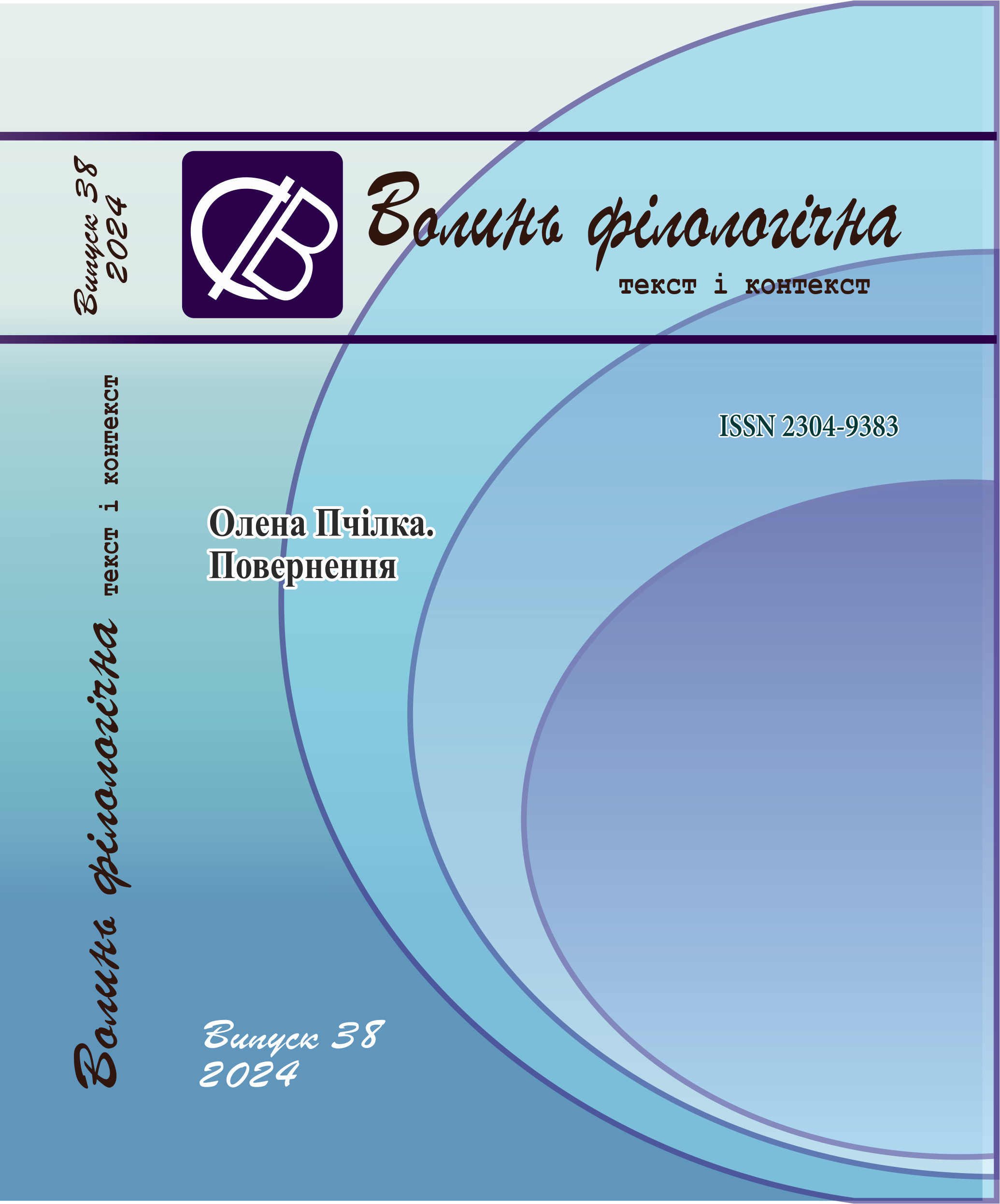Mykhailo Kosach as a character in Olena Pchilka‘s journalism (toquestions about role pseudonyms)
DOI:
https://doi.org/10.29038/2304-9383.2024-38.mokAbstract
The article talks about Olena Pchilka‘s pseudonyms recorded in dictionaries, as well as unidentified as an object for a separate study.
The purpose of the article is to outline phenomenology as an object of literary research pseudonyms in Olena Pchilka‘s work in general, in journalism in particular.
Achieving this aim requires a combination of methodological approaches: cultural-historical and cultural-sophistic (context of the era, cultural and social mission of the author), psychoanalytical (game in process creativity), metadramatic (“role in role” parameters), linguistic (onomastic aspect of pseudonyms), and structuralist (binary role distribution).
Results. In the process of creativity of artists of the 20th century dominate reflection
and conscious playing internal conflicts, and therefore the specificity of the creative process is determined by the game (in the deepest origins, sublimation equals game), and it becomes a special identifier of the author‘s style of dramatization of all genres and types of creative activity. In the article, it is proposed to do this for the first time writer‘s pseudonyms as a separate object of research, with the involvement of a number of modern ones methodologies. It is suggested in the study of writer‘s pseudonyms to turn to acting experience to use pseudonyms and roles. Several theses are offered for expression of the
phenomenology of writer‘s pseudonyms. The theses are confirmed by the analysis of two unidentified pseudonyms of Olga Kosach-Dragomanova – Mykhailo Zakhidny and Mykhailo Slobidsky, which appeared in the “Vestniki zemskikh Hadiatsky” in 1917 under her editorship. Conclusions. An important aspect of these two pseudonyms is their clearly emphasized binary (common name, semantically antonymous surnames). This is the embodiment of critical thinking of Olena Pchilka and at the same time of her political foresight. In addition to the main female role, specified in the most known by her pseudonym, Olena Pchilka also created a number of male roles.
References
Газета Гадяцького Земства (1917). №№ 38, 55, 59, 60, 63, 66, 67, 70, 87, 103, 108, 114, 115.
Гейзінга, Й. (1994). Homo Ludens. Досвід визначення ігрового елемента культури; пер. О. Мокровольського. Київ: Основи.
Єремеєва, І. (2014). «Nomen est omen»: псевдоніми в акторському середовищі Наддніпрянської України другої половини ХІХ – початку ХХ ст. Історія. Грані, 10, 140–144.
Косач, Михайло (Михайло Обачний) (2017). Твори. Переклади. Листи. Записи кобзарських дум; упоряд. Л. Мірошниченко. Київ: Комора.
Мірошниченко, Л. (2009). Михайло Обачний (Косач): правда документів і домисли. Спадщина: Літературне джерелознавство. Текстологія. 4, 102–120.
Мороз, Л. (2019). Персоналізований герой власне рольового типу в українській рольовій ліриці ХХ століття. Держава і регіони. Серія: Гуманітарні науки, 1 (56), 39–43.
Паві, П. (2006). Словник театру; пер. з фр. Маркіяна Якубяка. Львів: ЛНТУ.
Пчілка Олена (1912). Марія-Магдалена, мати гетьмана Мазепи. Рідний Край, № 7–8, 4–7, 5–10.

